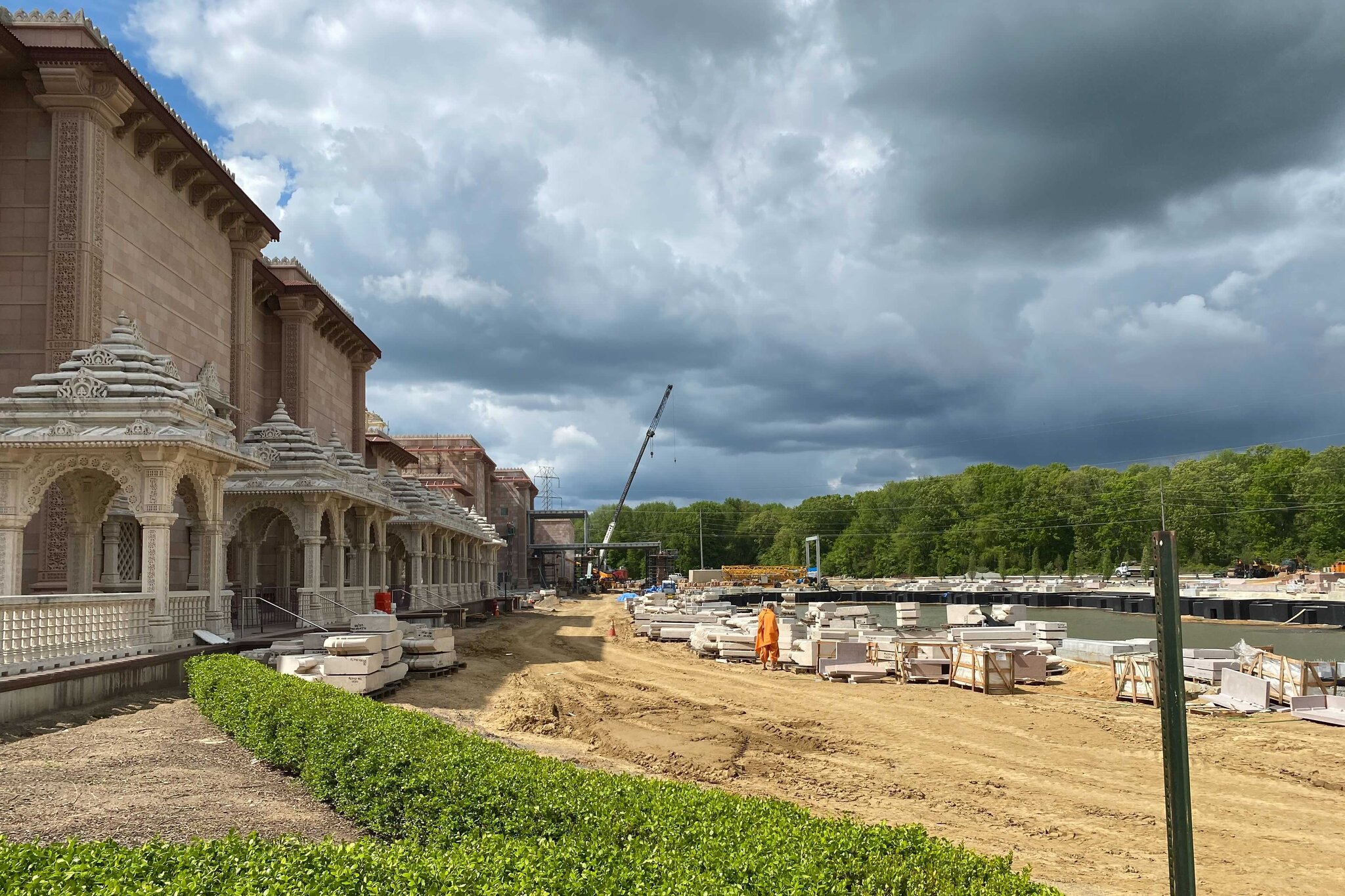
GLJ-ILRF Stands in Solidarity With New Jersey Workers Who Exposed Forced Labor and are Demanding Transnational Labor Justice Across the BAPS Global Supply Chain
Robbinsville, New Jersey — Yesterday caste oppressed workers in New Jersey came forward to demand changes in the BAPS global supply chain of temple construction which was revealed to rely on forced labor.
The New York Times broke the story and the workers filed a lawsuit in the Federal District Court for the District of New Jersey.
The International Union of Bricklayers and Allied Craftworkers and its Administrative District Council of New Jersey (BAC), the union representing stone masons and carvers in the U.S., and the Pathar Gadhai Mazdoor Suraksha Sangh (PGMSS), a labor union representing more than 3,000 stone carvers in the state of Rajasthan, India, issued a joint statement demanding safe worksites, fair wages, and rights and dignity on the job for these workers and all stonemasons and stone carvers.
Global Labor Justice – International Labor Rights Forum (GLJ-ILRF) Executive Director Jennifer (JJ) Rosenbaum said:
“Seventy percent of global trade now involves supply chains. GLJ-ILRF’s work with partners has helped educate a growing number of people about how the food we eat, the clothes we wear, and the cars we drive are produced through cross border supply chains that depend on an extractive business model.
Specifically, artisanal, religious temple stone carving has been commodified in a way that is exposing workers to sub-minimum wage working conditions and dangerous risk of silicosis as the carving is warehoused in India.
And as the artisan carved stones now move from India around the world for construction, the BAPS temple employers are also using labor migration programs to send Indian stonemasons – mostly from caste oppressed communities – for construction and installation work.
Yesterday the New Jersey workers exposed the sharp reality that some religious employers exploit workers similar to the worst multinational companies. In this case, the elite BAPS denomination used guestworker visas to create a captive workforce for installation of the carvings when they are shipped to the U.S. and around the world. The BAPS employer misclassified these temple construction workers as volunteers, who in reality worked twelve-hour days, seven days a week for about one dollar an hour. The BAPS temple employer held their passports, restricted their movement, used caste based slurs, and forcibly deported dozens of workers who helped raise questions about the untimely death of a well-respected co-worker at the worksite.
But it does not have to be like this. Temple building is growing as an important part of the construction industry across the world with strong Indian diaspora communities. This presents an opportunity for an expansion of labor with rights and dignity as an embodiment of religious values.
Whether in fast fashion, seafood processing, temple construction, or any sector of work, the way to combat forced labor is to increase access to labor rights and empower workers to organize and successfully bargain with their employers. When workers have robust freedom of association, there will be no forced labor.
Movements in both the U.S. and India – the world’s two largest democracies – must continue to demand that their governments act to empower workers to be able to join unions, successfully collectively bargain, and improve working conditions for themselves and their families and communities.
With the support of unions in the United States and India, these workers are demanding change to a global economy. GLJ-ILRF stands with them and calls on the Biden Administration to continue to expand the federal government’s policies, programs, and practices to empower workers to organize and successfully bargain with their employers both as part of U.S. domestic economic policy as well as in migration, development, and foreign policy.”
More information on how to support these workers is available here.


